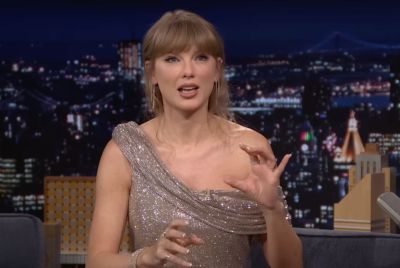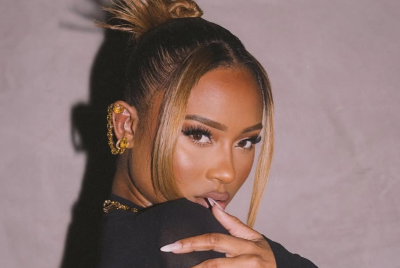Justin Bieber Lands GRAMMY Nods — But Critics Say His 'Flop' Album Doesn't Deserve It
The pop star's seventh studio album has been nominated for major awards despite disappointing performance, sparking a fierce debate online about the Grammys' credibility.

Justin Bieber is back in the Grammy race — and so is the controversy.
The Canadian singer's seventh studio album 'Swag' has earned four nominations, including Album of the Year and Best Pop Vocal Album, but not everyone is cheering.
While some see it as a creative comeback, others call it another case of Grammy favouritism, pointing to the album's modest commercial showing and harsh critical reviews.
A Quiet Album That Made a Loud Grammy Impact
Released with little promotion earlier this year, 'Swag' marked Bieber's return to music after parting ways with longtime manager Scooter Braun.
The album blended elements of R&B and mellow pop, showcasing a more stripped-back sound than his chart-dominating hits like 'Peaches' or 'Sorry'.
Yet, despite limited radio play and lukewarm chart performance, the Recording Academy nominated 'Swag' in four major categories.
It scored nods for Album of the Year and Best Pop Vocal Album, while two of its songs, 'Daisies' and 'Yukon', earned recognition for Best Pop Solo Performance and Best R&B Performance, respectively.
For Bieber, who has already collected two Grammys and 23 nominations throughout his career, this was a familiar spotlight. But the reaction online was far from unanimous praise.
Fans and Critics Question the Grammy Logic
Moments after the nominations were announced, social media erupted with disbelief. X user @melofknblonde wrote: 'Do we really need to nominate Justin Bieber every year he releases?
The album made 0 noise, had little to no commercial success, and one of the worst critics and public reception of the year... what's the criteria?'
Others echoed the sentiment, suggesting that Bieber's name alone had secured the nods. One user posted, 'His consistently mediocre projects getting the nom over The Weeknd, who's much more positively received... it just rubs me the wrong way.'
Still, not everyone was critical. Some fans defended Bieber's artistic intentions, saying 'Swag' was never meant to be a commercial powerhouse. 'It made "0 noise" and had "no commercial success" because it wasn't meant to be that,' wrote user @GreedyLive_. 'It was a passion project. He dropped 'Swag I' and 'II' out of the blue, it's pure art.'
The debate quickly split listeners into two camps: those who viewed the album as a creative experiment deserving of recognition, and those who believed the Grammys had once again overlooked more deserving artists.
It made "0 noise" and had "no commercial success", because it wasn’t meant to be that. I’m a big fan of him and I agree, it’s not his best album, but I really believe that wasn’t what he was even trying to achieve. He dropped SWAG I and II out of the blue — a pure passion project
— Greedy (@GreedyLive_) November 8, 2025
Sympathy Vote or Artistic Acknowledgement?
Some critics speculate that Bieber's nominations may reflect a sympathy narrative rather than pure artistic merit. Having previously battled serious health issues, including Ramsay Hunt syndrome, Bieber's gradual return to music has often been framed as a story of resilience.
One fan on X summed it up bluntly: 'I guess they felt sympathetic towards him and nominated him simply for the narrative of this being his comeback after his sickness.'
Music journalist Leah Clarke told Variety that the Grammys have a long history of rewarding familiar names, even during weaker creative periods. 'It's part of the institution's DNA,' she said. 'Legacy artists tend to be recognised even when their work doesn't perform commercially. It's both a loyalty and a marketing decision.'
do we really need to nominate Justin Bieber every year he releases? the album made 0 noise, had little to no commercial success, and one of the worst critics and public reception of the year..... what's the criteria https://t.co/w6Jlok4vAV pic.twitter.com/2SK3qoyacR
— mateo🫀 (@melofknblonde) November 7, 2025
his consistently mediocre/bad projects getting the nom over the Weeknd who is much more positively received... And I don't like the Weeknd either but it just really rubs me the wrong way
— Usman ❤️🔥 (@taysfavcardigan) November 7, 2025
I guess they felt sympathetic towards him and nominated him simply for the narrative of this being his comeback after his sickness
— solitaire (@mbassettbush) November 7, 2025
The Bigger Question for the Grammys
Bieber's controversial nominations have reignited a broader debate about how the Grammys choose their nominees. Over the years, artists like The Weeknd and Drake have accused the Academy of bias, claiming that politics often outweigh artistic achievement.
While Bieber remains silent about the backlash, his supporters insist the recognition validates his creative growth. For now, the question lingers: is the Grammys' obsession with star power overshadowing genuine artistry? As one fan wrote on X, 'The album flopped, but maybe the Grammys just can't resist a redemption story, even when the music doesn't match the hype.'
© Copyright IBTimes 2025. All rights reserved.





















